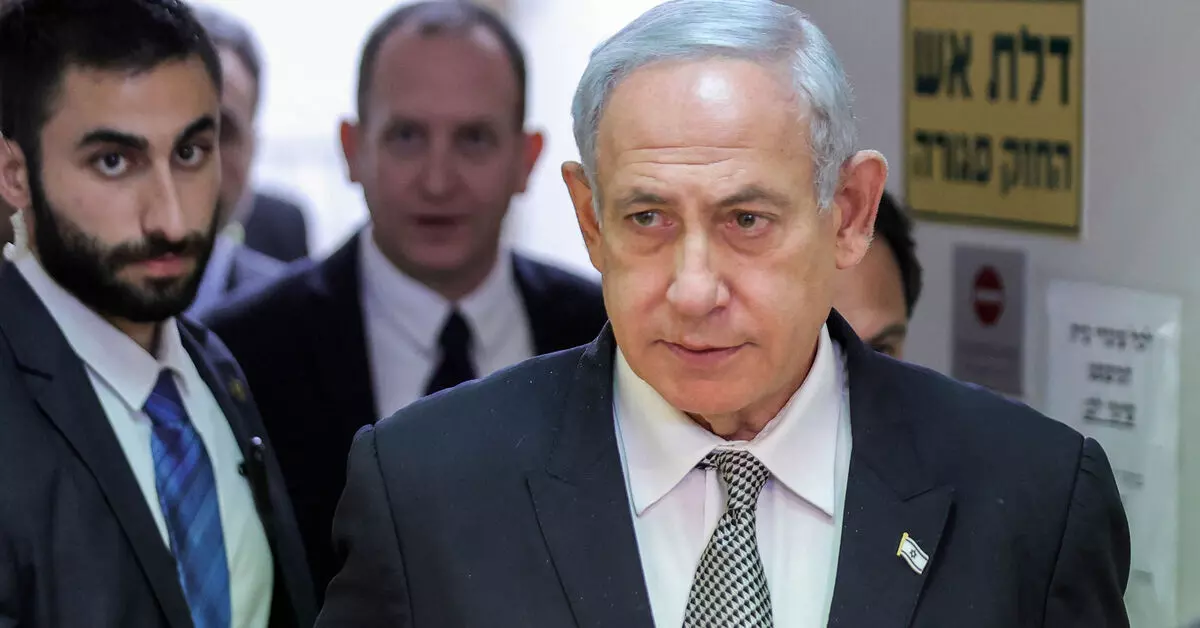
Israel PM Netanyahu delays judicial overhaul plan amid escalating protests, strikes
text_fieldsIsrael’s Prime Minister Benjamin Netanyahu announced a delay in his controversial plan for judicial overhaul on Monday amid escalating protests, strikes, and mounting international pressure.
He said he wanted to give time to seek a compromise over the contentious package with his political opponents.
“When there’s an opportunity to avoid civil war through dialogue, I, as prime minister, am taking a timeout for dialogue,” Netanyahu said in a nationally televised address, ten hours after he was originally scheduled to give a statement.
The prime Minister said that he was “aware of the tensions” and is “listening to the people.” “Out of the responsibility to the nation, I decided to delay … the vote, in order to give time for discussion,” Netanyahu added. However, Netanyahu said that the decision to delay was only temporary adding that the overhaul was necessary.
Following the announcement, Arnon Bar-David, the head of the country’s largest trade union, Histadrut labor union, announced that a general strike, which swept the nation on Monday, would be called off.
The far-right Jewish Power party revealed that the deal to delay the legislation would involve the creation of a civil National Guard controlled by party leader and National Security Minister Itamar Ben Gvir.
Netanyahu's statements came after tens of thousands of Israelis demonstrated outside parliament and workers launched a nationwide strike on Monday in a dramatic escalation of the mass protest movement aimed at halting his plan.
The crisis brought the country to a standstill posing threats to the economy. Departing flights from the main international airport were grounded. Large mall chains and universities closed their doors, and Israel’s largest trade union called for its 800,000 members to stop work in health care, transit, banking and other fields.
Entangled in corruption charges, Netanyahu has been forced to rely on unruly, extremist coalition partners and lately, has been struggling to maintain control inside and outside the Knesset.
The growing resistance to Netanyahu’s plan came hours after tens of thousands of people took to the streets around the country protesting against the Prime Minister’s decision to sack his Defense Minister Yoav Galant for opposing the judicial overhaul plans.
Chanting “the country is on fire”, the protestors lit bonfires on Tel Aviv’s main highway, closing the thoroughfare and many others throughout the country for hours.
Demonstrators gathered again Monday outside the Knesset, or parliament, turning the streets surrounding the building and the Supreme Court into a sea of blue-and-white Israeli flags dotted with rainbow Pride banners. Police used stun grenades and water cannons to disperse demonstrators overnight.
Even as protests raged across the country, a parliamentary committee continued to approve parts of the legislation.
If the plans for the judiciary go ahead in their current form after the Knesset break, Israel is still likely to face a constitutional crisis in which the supreme court could strike down the legislation, and the coalition could choose not to comply.
If the judicial overhaul is abandoned and the government collapses, Israel could once again be headed for elections.
Only one in four voters support the judicial overhaul, according to recent polling by Israel’s Channel 12. Several previous attempts at delay, negotiation and compromise brokered by the figurehead president, Isaac Herzog, have been declared unworkable by the government.
After five elections since 2019 in which voters were split over whether the scandal-plagued Netanyahu was fit to lead the country, a bloc of extremist and religious parties headed by the Likud won elections last November, going on to form the most rightwing administration in Israeli history.
























